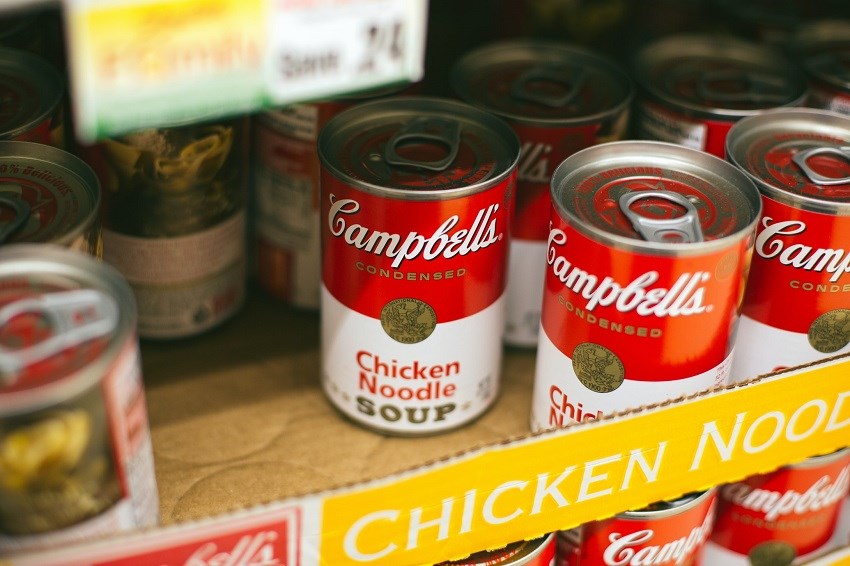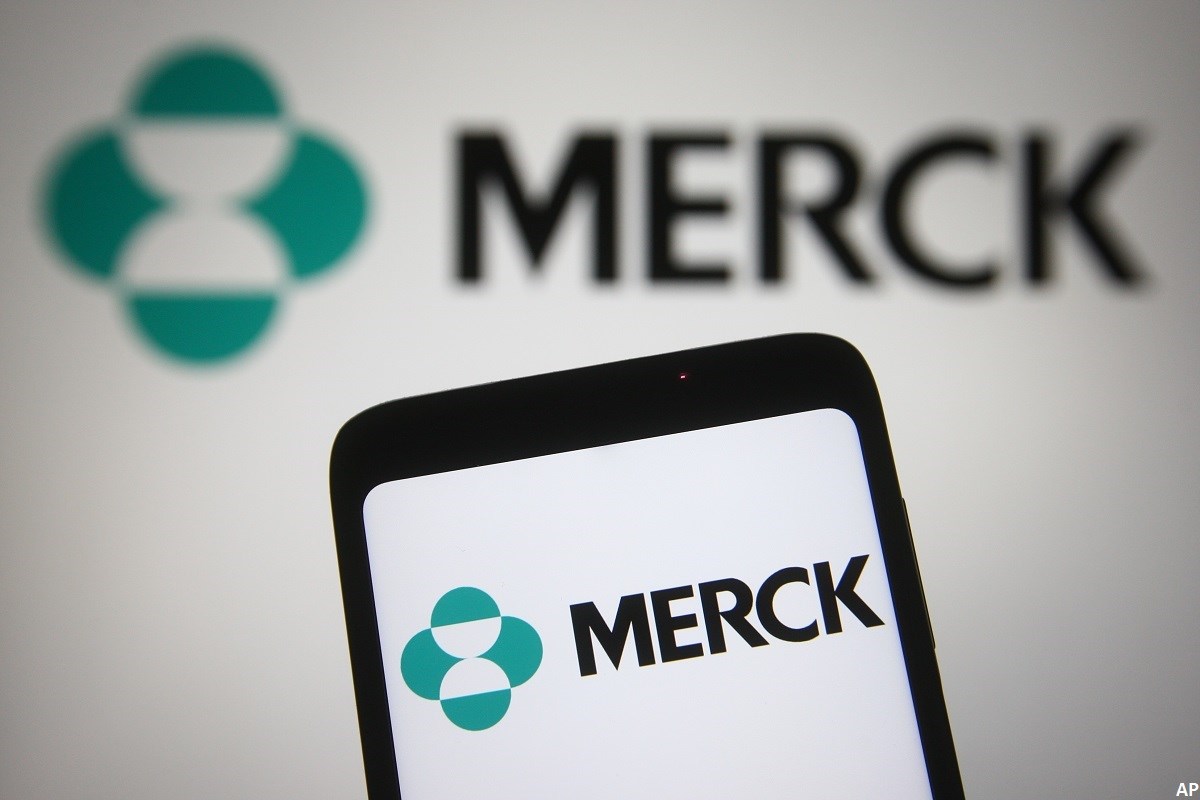
Inflation continues its steady upwards march, hitting new highs every month. Add to the mix the growing fear over the new mutated COVID-19 variant Omicron and how it will impact the economy, and we have a spate of panic selling battering stock markets worldwide.
The resultant spike in risk aversion has sent investors scrambling for rare investing opportunities where strong business fundamentals aren’t tidally locked to lofty stock valuations.
Fortunately, there are some opportunities available in the Morningstar coverage universe where some wide-moat names with undeniable business prospects are experiencing a sharp disconnect between their market price and intrinsic value. The following three stocks offer an attractive buying opportunity for value seekers who want the best of both worlds.
|
Campbell Soup Co |
||
|
Ticker |
||
|
Current yield: |
3.43% |
|
|
Forward P/E: |
15.36 |
|
|
Price |
US$43.15 |
|
|
Fair value: |
US$48.50 |
|
|
Value |
11% discount |
|
|
Moat |
Wide |
|
|
Moat Trend |
Negative |
|
|
Star rating |
**** |
|
|
Data as of Dec 13, 2021 |
||
Campbell Soup (CPB) is a leading manufacturer and marketer of branded convenience food products, most notably soup. The firm's well-known brands include Campbell's, Pace, Prego, Swanson, V8, and Pepperidge Farm. It derives nearly all of its sales from its home turf.
“Even as it faces rampant cost inflation and stepped-up competition, we surmise Campbell had been implementing a prudent strategic playbook before the pandemic (anchored in investing to drive profitable growth in its meals and snacking arms) that should aid its ability to navigate the current challenging backdrop,” says a Morningstar equity report.
Campbell is pursuing a prudent course to neutralize the eroding effects of cost inflation. “For one, the firm intends to raise prices across its mix to offset these headwinds, while also continuing to pursue cost efficiencies (to the tune of US$850 million by the end of fiscal 2022),” says Morningstar sector director, Erin Lash, who puts the stock’s fair value at US$48.50.
There are opportunities for further savings, particularly within its supply chain and inventory management, she adds.
Campbell boasts a wide economic moat that is a conspiracy of brand intangible assets and a cost advantage. “As such, we expect the firm’s returns on invested capital to remain above its cost of capital (even under a more bearish outlook) over the next 20 years,” assures Lash.
As a leading packaged food manufacturer (controlling nearly 50% share of the U.S. soup aisle, according to Euromonitor), Campbell is a valued partner for retailers, which bolsters its intangible asset moat source.
“Even in the face of more pronounced near-term commodity, transportation, packaging, and labour cost pressures, we anticipate the combination of higher prices at the shelf and the pursuit of additional cost efficiencies will serve to stem the hit to profits longer term,” Lash notes.
|
Bristol-Myers Squibb Co |
||
|
Ticker |
||
|
Current yield: |
3.48% |
|
|
Forward P/E: |
7.15 |
|
|
Price |
US$56.36 |
|
|
Fair value: |
US$68 |
|
|
Value |
17% discount |
|
|
Moat |
Wide |
|
|
Moat Trend |
Stable |
|
|
Star rating |
**** |
|
|
Data as of Dec 13, 2021 |
||
Healthcare heavyweight Bristol-Myers Squibb (BMY) discovers, develops, and markets drugs for a range of therapeutic areas, such as cardiovascular, oncology, and immune disorders. Immuno-oncology remains a key focus for Bristol where the firm is a leader in drug development. Bristol has exited several nonpharmaceutical businesses to focus on branded specialty drugs, which tend to support strong pricing power.
Through partnerships and acquisitions, Bristol-Myers Squibb has built a strong portfolio of drugs and a formidable pipeline. “This strategy is seen with its large acquisition of Celgene, which netted the firm an excellent pipeline and a strong entrenchment in blood cancer, says a Morningstar equity report
Bristol has created a strong pipeline, source of its wide moat, and brought in partners to share the development costs and diversify the risks of clinical and regulatory failure. “The cardiovascular partnership with Pfizer represents one of the most important partnerships, managing the blockbuster potential of Eliquis in atrial fibrillation,” says Morningstar sector director, Damien Conover, who puts the stock’s fair value at US$68.
As part of its aggressive repositioning, to counter challenging patent losses, the firm has shed its diabetes business, medical imaging group, wound care division, and nutritional business to focus on the high-margin specialty drug group.
“The Celgene acquisition moves Bristol significantly further into the specialty pharmaceutical segment of the market,” notes Conover, pointing out cancer treatment to be an area with strong drug pricing power, “which should help Bristol maintain its drug pricing ability in a time when both governments and private payers are pushing back on drug prices.”
The firm’s wide moat is built on a robust lineup of patent-protected drugs, an entrenched salesforce, and economies of scale.
|
Anheuser-Busch InBev SA/NV ADR |
||
|
Ticker |
||
|
Current yield: |
2.02% |
|
|
Forward P/E: |
17.99 |
|
|
Price |
US$57.92 |
|
|
Fair value: |
US$90 |
|
|
Value |
36% discount |
|
|
Moat |
Wide |
|
|
Moat Trend |
Stable |
|
|
Star rating |
***** |
|
|
Data as of Dec 13, 2021 |
||
Brewing behemoth Anheuser-Busch (BUD) is one of the world's top five consumer product companies whose portfolio contains five of the top 10 beer brands by sales and 18 brands with retail sales over $1 billion. The firm holds a 62% economic interest in Ambev and in 2016 acquired SABMiller.
AB InBev has made transformative deals to grow into the largest brewer in the world with a global footprint. “Management's strategy is to buy brands with a promising growth platform, expand distribution, and ruthlessly squeeze costs from the business,” says a Morningstar equity report.
While a series of road bumps since the SABMiller deal has caused EBITDA growth to slow, previous acquisitions have paid off well, creating a monster with vast global scale as well as regional density.
“AB InBev has one of the strongest cost advantages in our consumer defensive coverage and is among the most efficient operators,” says Morningstar sector director Philip Gorham.
“Vast global scale, along with its monopolylike positions in Latin America and Africa give AB InBev significant fixed cost leverage and procurement pricing power.”
This has helped the firm generate excess returns on invested capital and best-in-class operating and cash cycles, asset turnover ratios, and working capital management.
AB InBev's profitability is driven in no small measure by its majority stake in Ambev, the Latin American brewer that generates a whopping near-40% EBIT margin in beer in Brazil.
Further, AB InBev delays payments to trade creditors more than 20% longer than its closest rival Heineken, and its free cash flow conversion has been consistently higher than peers in recent years, says Gorham who appraises AB InBev's ADRs to be worth US$90.






















